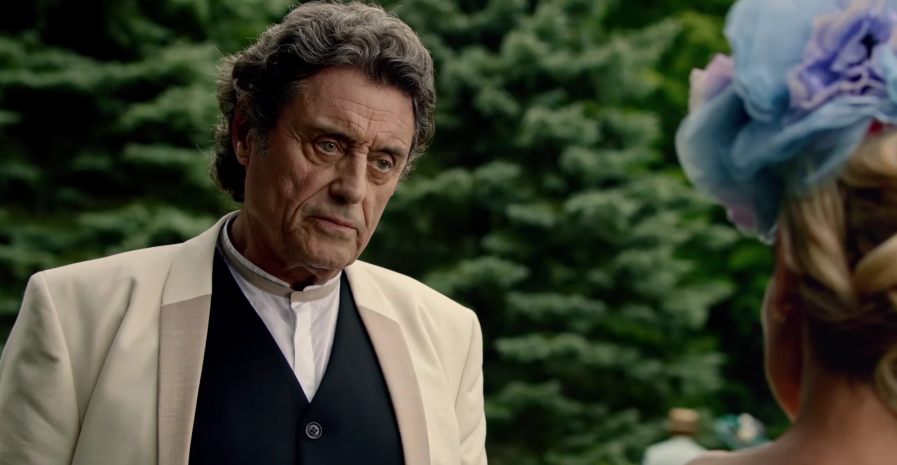American Gods, an adaptation of Neil Gaiman’s novel of the same title, pits the old world against the new world in a mesmerizing Starz series.
The show mainly follows the perspective of one character, Shadow Moon, as he slowly comes to realize that fantasy, reality and the future are all blended together and are at war. Or at least that’s what seems to be going on — as the viewer, we can’t really tell.
Miles Davis said that jazz isn’t about the notes that are played, but rather the notes that aren’t played. In this fashion, Bryan Fuller and Michael Green’s adaptation of American Gods isn’t about the information it tells you, but rather the information they avoid telling you.
We only have as much information as Shadow does, so the lunacy that we see in the world is the same that he sees. Whether this is dream sequences, hallucinations or supernatural events happening to him, we are left in the dark as to their significance. Luckily for us, however, our own sanity is not questioned the way it is for him.
The show’s structure is fascinating, with each of the first two episodes beginning with groups of people coming to America and how their interactions with the new world are shaped by their perspective of god.
Episode two featured a particularly emphatic performance from Orlando Jones as an African trickster god who convinces a slave on a Dutch slaving ship to destroy the vessel, thus killing them all. His flamboyant and passionate monologue is highlighted by various lines of modern social commentary including “you don’t even know you’re black yet — you still think you’re people.”
So far, each episode has begun with one of these intros, showing how a new god was brought to America — the second episode showed Mr. Nancy coming to America as a colorful shapeshifting spider, and the first episode showed a Viking god’s introduction to the country with ritual and blood sacrifice.
Other gods, who are all in human-like incarnations of themselves, have been introduced on the show — I refer to these people affectionately as “vape douche,” “sex goddess,” “Lucielle” and “Lucky Charms.” Hopefully these names would be obvious to a viewer of the show.
While the show comes off as scattered and frankly disjointed through two episodes, the source material being so well-renowned gives me faith that the show will slowly insert concrete knowledge into the dialogue, letting us finally know what kind of world we are dealing with.
Until that point, the audience has the robust backbone of Ian McShane and Ricky Wittle’s stellar performances and enough chemistry to hold up the perplexing storyline. That’s not a bad consolation prize.



